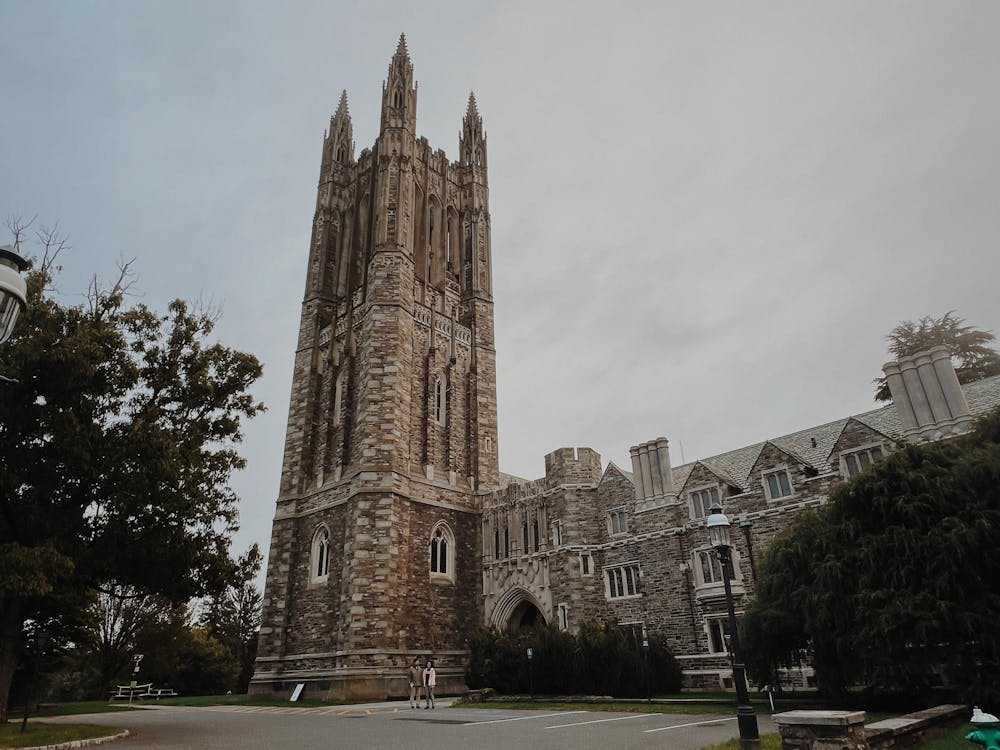For Princeton students who are looking to enter graduate school, the University offers numerous programs across disciplines in the humanities, STEM, and social sciences alike. However, despite lacking a medical school, Princeton offers a uniquely extensive line of resources, support, and assistance for pre-med and pre-health students, who in turn benefit from a number of pre-medical school programs and fee assistance in their applications. But now more than ever, Princeton needs to expand this support to students across all disciplines in their graduate school ambitions. There are many initiatives that Princeton could introduce, including adding in medical-school-style early assurance programs, establishing sources of funding for graduate school applications, and offering pre-grad school programs.
As compared to pre-grad students in other fields of study, pre-med students at Princeton enjoy a number of University-provided resources and opportunities. Princeton’s Health Professions Advising (HPA) department offers pre-med students resources related to their post-graduation plans, as well as individualized advising that prepares students for med school applications and helps them navigate the pre-med track at Princeton.
Of these resources, early assurance programs are among the most beneficial. They allow students to apply to med schools during their time at Princeton, usually as sophomores, giving them provisional admission to the institution conditional on some further participation — usually through research at the institution and/or pre-med school programming. This assures not only a med school admission, but also often research opportunities. Above all, early assurance programs help pre-med students make the most of their Princeton experience after their acceptance, as those undergrads can explore their varied interests at Princeton without the burden of worrying about their GPA or fulfilling grad school entrance requirements.
Beyond medical schools, Princeton should expand early assurance program partnerships with other institutions’ graduate schools to make early undergraduate acceptance into programs of higher education a possibility. This would allow more students to get the benefits of in-field research with those they are considering graduate study with, and more to have the assurance — and accompanying freedom — of the provisional acceptance. Such a program could also act to strengthen external institutional ties as well as drive the creation of internal programs that build pipelines for current students to apply for early assurance directly to Princeton’s graduate school during their time at the University.
For students interested in law school, Princeton could establish partnerships with other institutions and create programs that offer students access to accelerated law degrees, similarly to how Rutgers Law School does with multiple other institutions. To keep their commitment to the University as a four-year college, the University should instead consider introducing pre-law programs that allow students to take courses at partner law schools during summer breaks. This would ultimately allow students to have law school credits that would transfer over following their graduation, and would give them a head start on their pre-professional school experience.
Many students at Princeton also pursue masters degrees and doctorate degrees. For these students, the University should consider programs similar to pre-med record enhancement programs, which allow students to bolster their academic record and improve their credentials before pursuing their graduate degree after graduation. These record enhancement programs could provide pre-grad students with vital opportunities to improve their grad school applications.
Another pre-med program that could be used as a model are career changer initiatives, designed to provide post-grad options for students who become interested in medical school late in their undergraduate career. Such programs would be especially useful for students interested in pursuing graduate and pre-professional study pathways that are not directly related to their undergraduate degree. For students who change majors late in their Princeton career — as I did from Physics to Anthropology in the fall of my junior year — being able to access opportunities before deciding between graduate school and professional opportunities is invaluable. These are for students who are interested in interdisciplinary study and choose another subject to study at graduate school — as I am, by applying to philosophy graduate programs.
For students who are specifically interested in pursuing research-based degrees — specifically master of philosophy and Ph.D. programs — Princeton should consider creating internal Post-Baccalaureate Research Education Programs (PREP). Such programs are designed to help students build research and methodological skills after graduation, which would help students build their research skills and experiences before committing to rigorous, long-term research programs.

Finally, as an extension to pre-existing programs that offer forms of financial support for medical school applications, it’s imperative for the University to introduce a grad school application fund. Not only would such a fund relieve the economic burden of applying to graduate programs, it would also streamline the application process. Grad school applications are expensive and fees may discourage students from applying at all. The cost for the required exams alone is significant — the LSAT costs $238 to register for and added fees to preview scores, and the GRE $220. This is especially relevant for low-income students, who are disproportionately affected by the cost of applying to graduate school. For these students, access to institutional funding could make all the difference between applying and not applying.
This is the moment for Princeton to commit to improving the graduate application process for all students by using the model that works to support pre-med students to support students of all types — and to go beyond it. All of this will help Princeton build an undergraduate education, and graduate education, that supports a diverse student body in pursuing their diverse interests.
Asa Santos is a senior Anthropology major from London and São Paulo, minoring in Gender & Sexuality Studies and Global Health & Health Policy. Santos' column, “Opening the Gates,” runs every two weeks on Tuesdays. All of Santos’ columns can be read here.









